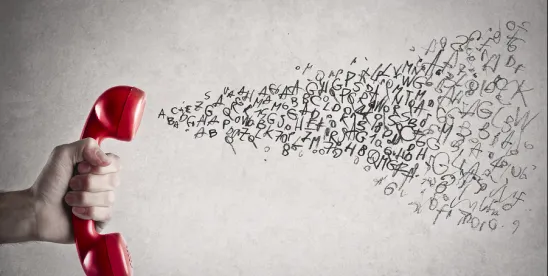With election season under way, it bears repeating that candidates for office are not immune from the restrictions imposed by the TCPA. As the FCC’s Enforcement Bureau explained in an advisory that we discussed previously here, while “[p]olitical prerecorded voice messages or autodialed calls—whether live or prerecorded—to most landline telephones are not prohibited, so long as they adhere to the identification requirements” mandated for all prerecorded messages, the “broad prohibition” on calls to cell phones and other specific types of phone numbers (e.g., health care/emergency lines) “covers prerecorded voice and autodialed political calls, including those sent by nonprofit/political organizations.” Candidates (or their supporters) who are not aware of the TCPA (or confused about the difference between the restrictions on informational calls to cellular phones versus such calls to residential landlines and not aware of the difficulties in managing recycled number issues) risk finding their campaign embroiled in litigation, as evidenced by a new TCPA filing last week.
Illinois resident Cary Wolovick filed a purported class action last week against Andrew Seo, a candidate for the office of Commissioner of Metropolitan Water Reclamation District of Greater Chicago, and Seo’s campaign committee, Citizens for Seo, in the Northern District of Illinois in Wolovick v. Citizens For Seo et. al., No. 16-cv-2787 (N.D. Ill. Mar. 3, 2016), seeking injunctive relief and an award of statutory damages for alleged TCPA violations. Wolovick alleges in a one-count Complaint that Seo and his campaign violated the TCPA when, on several occasions, they placed calls to his wireless telephone using an ATDS which delivered prerecorded political messages such as the following: “Hi, I am Andrew Seo, a candidate for Water Reclamation District. I have a plan for government consolidation.” Wolovick avers that he has no connection to Seo or his campaign: he claims he never inquired about Seo, never donated to his campaign, and never provided his number to Citizens for Seo. The Complaint claims that numerous individuals have reported receiving similar unwanted campaign calls, and collectively, have suffered actual damages in the form of cell phone charges and an invasion of their privacy interests. The Complaint asks the court to find Seo personally liable for his direct participation in these allegedly harmful calls.
The Citizens for Seo case is not the first such election-related TCPA case. In 2013, Lori Shamblin filed a putative class action against the “Obama for America” campaign, alleging that she had received two unsolicited, prerecorded telephone calls to her cellular phone that were made using an ATDS. Although the Middle District of Florida eventually denied class certification in that case on the grounds that the plaintiff had failed to prove commonality and that individualized issues predominated, Shamblin v. Obama, No. 8:13-cv-2428-T-33TBM, 2015 U.S. Dist. LEXIS 54849 (M.D. Fla. Apr. 27, 2015), it took almost two years for the defendants to dispose of the critical issues. Campaigns are not the only ones at risk: in 2015, Gallup paid $12 million to settle a purported TCPA class action alleging that Gallup violated the TCPA by calling cellular telephones using an ATDS for the purpose of polling individuals on political and social issues.
It is also worth noting that certain states have their own calling restrictions which may be more restrictive than the TCPA, and candidates and their supporters should ensure compliance with those restrictions as well before embarking on a calling campaign. See, e.g., Cahaly v. Larosa, 796 F.3d 399 (4th Cir. 2015) (affirming in part, vacating in part, and remanding district court judgement regarding lawsuit filed by Republican political consultant after he was arrested and charged (the charges were later dismissed) with violations of South Carolina’s laws restricting automated and prerecorded calls); Patriotic Veterans, Inc. v. State of Indiana, 736 F. 3d 1041 (7th Cir. 2013) (holding that the TCPA does not preempt Indiana’s Automated Dialing Machine Statute’s more restrictive regulations). While more restrictive state statutes may not survive a First Amendment challenge, that is a battle candidates may not wish to fight during the election. See, e.g., Cahaly, 796 F.3d at 402 (“Under the content-neutrality framework . . ., we find that the anti-robocall statute is a content-based regulation that does not survive strict scrutiny.”)




 />i
/>i

